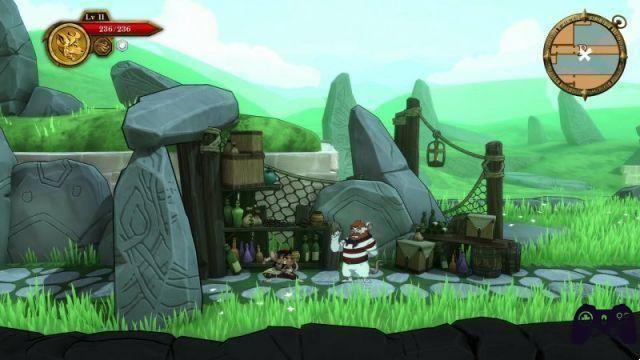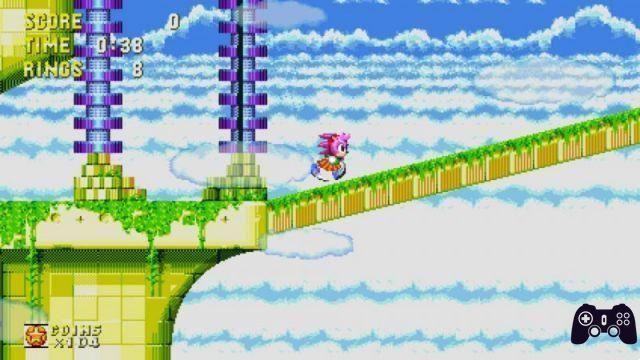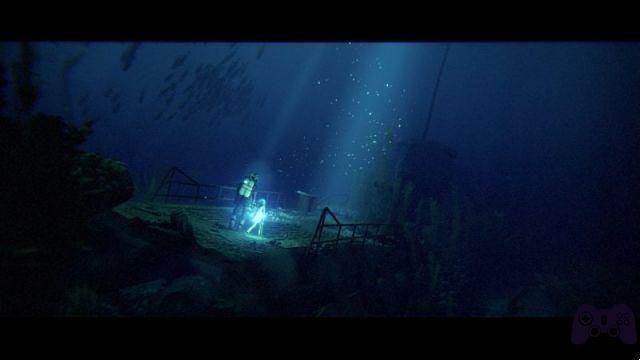Who remembers the history of the Egyptians studied in school? They were those of the hieroglyphics and the slaves who built the pyramids, those who never laughed and whose leaders, read pharaohs, populated the collective imagination in the form of mummies. Those who had the Nile River to make their lands fertile and the scribes to make the historians happy.
All this will have been very useful to us. Total War: Pharaoh Review?
to the conquest

There was one particularly telling moment in our playthrough of Total War: Pharaoh, and it occurred early in the game, in the onboarding phase. Basically the Tutorials He asked us our level of experience with other Total War games, inviting us to skip all the explanations of the basic mechanics if we had played more than one. That said, we immediately moved on to the exposition of the new mechanics, only to discover that there was little left to reveal. Sure, there is some, and it's interesting too, but the bases are almost identical to previous games, battles included. The one from Creative Assembly is not the first video game that does something like this with the tutorial, that is, allowing the most experienced players to skip some parts, but here evidently the fatigue from years and years of very similar chapters has given rise to a kind of prejudice that affected the entire experience and against which we could not do much. But before we continue, let's find out the prerequisites of our work.
Egypt is at a turning point. Merneptah, the current pharaoh, is old and feels his time coming, but his succession is uncertain. The contenders to reign, as well as many generals that the player can lead in battle (each with their bonuses and penalties, it goes without saying), are: Ramses, a tough and pure warrior, determined, impetuous and charismatic, with indomitable ambition; Seti, the son of Merneptah, fierce and eager for power, aggressive with his opponents and little versed in the art of diplomacy, pays enormously for each defeat because not many want to follow him; Tausret, wife of Seti, a sharp and determined political woman, determined to take the place of her husband, in her opinion incapable of assuming the role of pharaoh; Amen, another son of Merneptah, endowed with considerable economic power, but consumed by anger at having seen Seti preferred in the line of succession.

In addition to the four Egyptian generals, it is also possible to lead four generals from neighboring civilizations, who have different objectives for Egypt, such as Irsu of the Canaanites, who will only feel satisfied when he sees the kingdom of the Nile burn, or Suppiluliuma of the Hittites, who wants to grow his empire to counteract the chaos that is coming. In short, the political and social situation in which we will find ourselves is extremely complex, with the Nile lands threatened by internal and external dangers.
Ancient Egypt

Lo script Total War: Pharaoh is definitely one of the best parts of the game. As always, Creative Assembly has done everything possible to try to reproduce the iconography of the chosen historical period as best as possible, although it must be said that in this case there are many forcings, probably implemented so as not to lose many of the mechanics introduced in the previous games. , which would end up flattening the experience a bit. Let's say that Egypt was not an overly militarized kingdom, which was one of its strengths, also considering the harshness of some of its regions. But in a Total War, remaining perfectly faithful to historical reality could present a problem, particularly when it comes to troop variety. It is no coincidence that the game is set during the New Kingdom (1550 - 1069 BC), a period in which Egypt saw the consolidation of its army, with the introduction of new weapons and armor for all soldiers.

However, we are far from the warlike complexity of a society like the Roman one, which at that time had not even been born yet, also because most of the cities in the area were poorly fortified and battles were often based on speed, where military actions were driven primarily by the need to defend the borders from raids by neighboring tribes. In short, staying close to history would have clashed greatly with the objectives of a Total War, therefore Creative Assembly decided to take some licenses to keep the game's focus on the war. For example, it has greatly expanded the defenses of some cities, to justify maintaining all the systems dedicated to sieges seen in previous chapters.
Manage the kingdom

A similar argument can also be made for the part administrative strategy, which is played on the map where troops move, the production of conquered cities is modified, new generals and new units are hired and all those systems that are needed to guarantee the social and economic stability of our kingdom are managed. This is where the main innovations were introduced. In particular, the concept of Legitimacy, as well as the introduction of the Pillars of Civilization, a system that aims to represent the balance at play according to the Egyptians. Basically the ways to become Pharaoh There are two: the classic of the series, that is, eliminating all enemies by taking absolute power, and the one most in line with Egyptian traditions, in which not only expansion counts, but also the relationship with the other leaders of the neighbor countries. tribes, who can become our vassals if they recognize the right qualities to reign in us. Therefore we must try to respect the agreements made in the diplomatic phase, we must try to obtain the approval of those we want at our service (when you become pharaohs you obtain special powers linked to the management of relationships with other leaders), We must express We increase our status by adorning ourselves with jewelry and using our power, possibly wisely, and we must show respect for traditions, worshiping the gods that best represent us and our people.

these are the classics specialization systems of the faction, with which we dictate the elements that outline our policy. In many cases these are inevitably variations of what was seen in previous Total Wars, designed to bring the experience closer to what Egyptian reality was like. Some ideas are very interesting and give personality to Total War: Pharaoh, such as the introduction of the Shemsu Hor, a twist inspired by a real tradition from ancient Egypt in which it is possible to profoundly modify our court, made up of trusted people who help in the statesmanship.
In short, you will have understood that the strategic management section is the best aspect of the game, in addition to the one that offers the most elements of interest, even for those who have already played the old Total War games. The campaigns themselves are structured to offer a certain variety, with the rise to power occurring towards the middle of the game, followed by its management and the arrival of new enemies from beyond the sea, more or less strong depending on what we have been carrying out. carried out the campaign up to that point. So we have an expansion phase, a consolidation phase, and a defense phase that appear very different throughout the game and ultimately work well as well. After all Creative Assembly now knows how to handle the genre perfectly, so it's not that surprising.
War never changes

Where the weight of Total War's long lineage is really felt in a suffocating way is in the battles. Paradoxical, given that they should be the fulcrum of the experience. To put it bluntly, we have never skipped as many times as we did in this chapter out of fatigue, simply because the changes introduced to the game system are so few that in some cases we had no incentive to directly take control of the army. Compared to Total War: Warhammer III, the pace has been slowed down slightly to make our commands more efficient, while some of the changes the developers boasted about, such as the revised troop fatigue and panic system, have not. they made. It then seems so incisive in the gameplay. Their combats are always based on the concept of rock, paper, scissors, that is, you lead large armies and you must try to use your troops against the enemy units with which they are most effective. So the vast majority of the tactics used in the old Total War also work here.

There is definitely a greater focus on dynamic weather, with weather conditions being the ones that most affect the units. For example, storms render archer units useless, excessive heat increases fatigue, while streams slow down infantry and chariots. The dynamic terrain concept has also been expanded, with units now able to advance, hold positions or retreat during battles, adapt to the situation, and create or close corridors for opponents. The problem is that there is not much more and that in the end it takes very little to adapt to the changes and once again have the impression of having seen it and, above all, done it, so much that one gives it willingly. Most combats take place directly, especially when the imbalance of forces on the field is evident and there is no way to obtain any benefit from participation in the action, unless we adopt some strange deployment, try something beyond of the scope. -top tactics... but why do it, if the classic ones work very well?
Another total war

As well from a technical point of view Total War: Pharaoh It is in line with the standards of the series. The 3D models of the units are of the quality that we are accustomed to in the other chapters, the graphic detail is the same. There is Egypt, some animations have been revised, particularly those between battles, seeing hundreds of units facing each other in battle always has an effect, but for amazement it is better to look elsewhere. Above all, the style is what we have carried with us since the beginning of the series. In short, we certainly did not expect that it would be an intermediate chapter like this that would revolutionize the visual aspect of Total War, but we always return there: the fatigue of the formula is evident and beginning to be felt. Be careful, because we are not asking who knows what graphic momentum: Nowadays it would be almost immoral, taking into account the problems that the industry is having due to the increase in video game production costs, but simply a stylistic revision would have given more personality to the entire experience.
Conclusions
Tested version PC with Windows digital delivery Steam, epic games store Price 59,99 € Holygamerz.com 7.0 Readers (5) 7.1 your voteTotal War: Pharaoh is one of those chapters that work, but that don't seem to contribute anything to the discussion that the series carries out. Perhaps a little more courage would be needed, but it is also true that it is difficult to revolutionize a similar formula unless it undermines the foundations that regulate it, producing unpredictable effects. If we look more closely we find ourselves faced with a game that represents a large part of the current classic market, that is, it is well made, it has adopted the experience of its predecessors, but it completely lacks courage, to the point that it is It loses a bit among the other chapters of the series. Well, in the end the biggest problem we had with the latest Total War is that, when we finished testing it, we asked ourselves why it was worth doing it, without being able to give ourselves an answer.
PRO
- The flavor of ancient Egypt is there.
- The strategic management part has been enriched with some interesting innovations.
AGAINST
- It's just another total war
- Few notable changes in battles.






